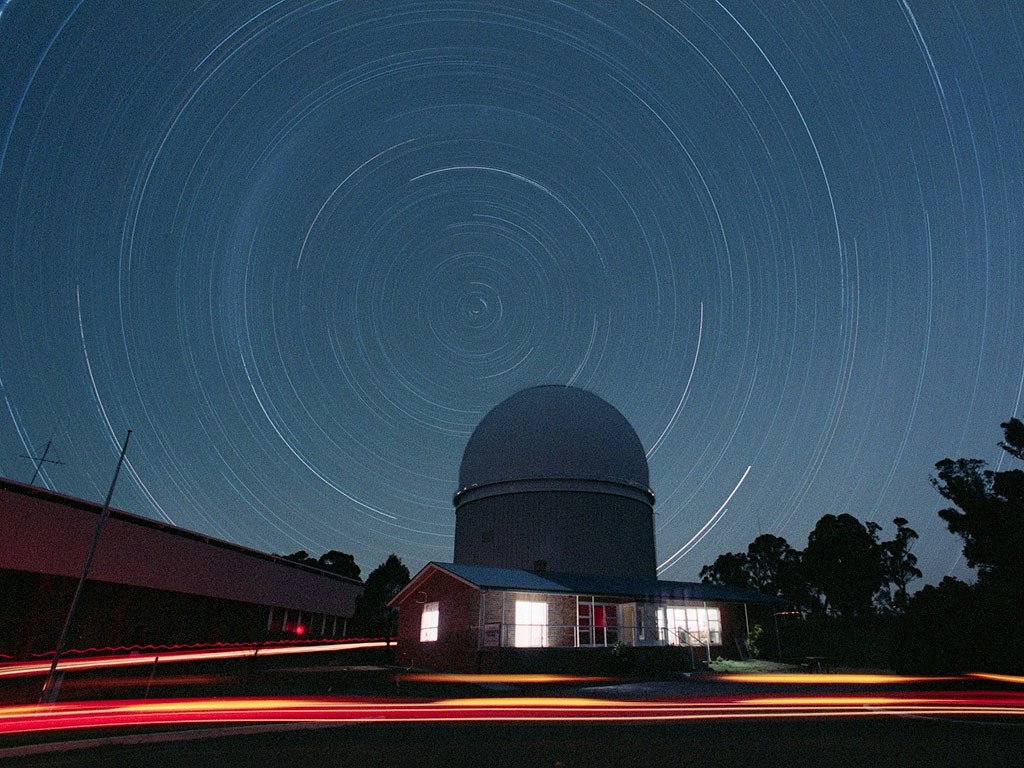
The La Silla Observatory is located on the outskirts of the Chilean Atacama Desert, 600 km north of Santiago de Chile and at an altitude of 2400 metres. Like other observatories in this geographical area, La Silla is located far from sources of light pollution and, like the Paranal Observatory, home to the Very Large Telescope, it has one of the darkest night skies on the Earth. La Silla has been an ESO stronghold since the 1960s. Here, ESO operates two of the most productive 4-metre class telescopes in the world.
The 3.58-metre New Technology Telescope (NTT) broke new ground for telescope engineering and design and was the first in the world to have a computer-controlled main mirror (active optics), technology developed at ESO and now applied to most of the world's current large telescopes.
The ESO 3.6-metre telescope is now home to the world's foremost extrasolar planet hunter: High Accuracy Radial velocity Planet Searcher (HARPS), a spectrograph with unrivalled precision.
The La Silla Observatory is the first world-class observatory to have been granted certification for the International Organization for Standardization (ISO) 9001 Quality Management System.The infrastructure of La Silla is also used by many of the ESO Member States for targeted projects such as the Swiss 1.2-metre Leonhard Euler Telescope, the Rapid Eye Mount telescope (REM) and the TAROT Telescope gamma-ray burst chaser, as well as more common user facilities such as the MPG/ESO 2.2-metreand the Danish 1.54-metre Telescopes. The 67-million pixel Wide Field Imager on the MPG/ESO 2.2-metre Telescope has taken many amazing images of celestial objects, some of which have now become icons in their own right.
La Silla Observatory is an astronomical observatory in Chile with three telescopes built and operated by the European Southern Observatory (ESO). Several other telescopes are located at the site and a..